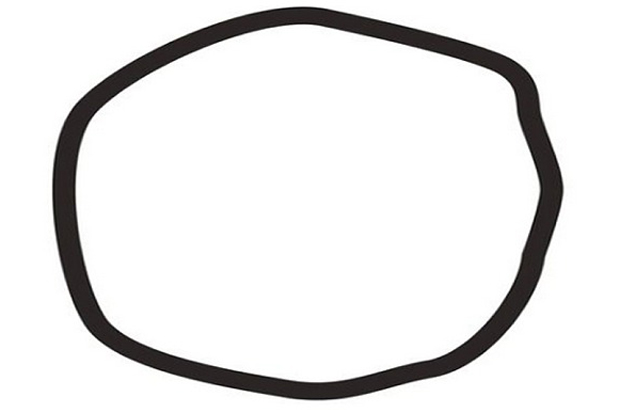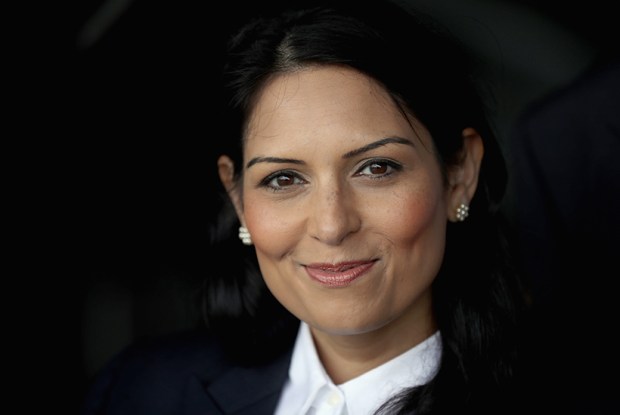Why are liberals morons? I’m sure that this question has rattled around your mind before, perhaps when watching one of those fair and balanced debates between three ill-dressed but very liberal women that Newsnight puts on every evening, hosted by Kirsty Wark. You hear them tiptoeing through the -nether regions of some important political issue, carefully sidestepping the nub of the matter, obfuscating, denying the patently obvious even when it is staring them right in their smug faces, jabbering ineffectually about nothing in essence. How can these silly mares be this way, you may have asked yourself. How can they navigate their way through life on such slender mental resources? And you may even have come to a sort of conclusion: they are stupid because they do not see the world as it really is, but only as they would wish it to be. They have no handle on reality. They are in a state of denial. That is why they are morons.
The rather cheering news is that this thesis of yours, if indeed it is your thesis, now seems to have been proven by science. The Journal of Personality and Social Psychology recently carried out a test in which they asked people to identify a shape. The shape was what I would call an irregular ellipse, a sort of vaguely oval outline, except quite inconsistent in its circumference. The researchers discovered that people who said the shape was ‘a circle’ were more likely to be liberals. People who correctly identified the shape as definitely not a circle, but something else altogether, were more likely to be possessed of conservative political views. Still more pertinently, those who looked at this sort of splodge and said yep, it’s a circle, were more likely to be welcoming to immigrants and more inclined to be tolerant of filthy and aberrant and sinful and sociopathic lifestyles. (The Journal didn’t quite report it like that, but you get my drift.) Interestingly, the scientists did not draw the obvious conclusion from their fine research. They did not stoop to judge. So given their professional restraint, I will judge instead.
The first and most obvious point to make is that objectively, the shape was not a circle, nor anything very much like a circle — so the liberals were factually wrong. I think this makes them stupid. The second point is that these findings fit in precisely with the stuff I was talking about before — Kirsty Wark and the three liberal women who agree with each other about everything on Newsnight. Much like the Newsnight debate I mentioned previously in this column, immediately after the Paris atrocities, in which one woman announced that the cause was the racist nature of Paris and another talked about a theory that it had been carried out by rival drug gangs. This particular debate still makes me convulse with grim laughter when I think about it, the debate in which the words Muslim and Islam were not used at all, at any point — long after we’d all seen film footage of the murderers screaming ‘Allahu akbar!’ and so on. It is more of that liberal wishful thinking, the refusal to see the world as it is; a severe mental impairment, I would call it. You can imagine trying to put them right on this point, perhaps shaking them by the shoulders, your frustrated spittle glistening in their hair. No, ladies. The shape is not a circle. No matter how much you might wish it was a circle, it is still not actually a circle. It is a different shape entirely.
It is not generosity of spirit or -lateral thinking which leads liberals to say that something which isn’t a circle actually is a circle. It’s stupidity or self-delusion (and they are one and the same thing in the end).
This is the first time I have seen scientific research that proves that liberals are morons. Non-scientific evidence is all around us, of course. But it is nice to have the whole matter nailed down. There have been tendentious reports before which have attempted to prove the converse — that conservatives are stupid and liberals really clever. At the London School of Economics a researcher called Satoshi Kanazawa, suggested that liberals were smarter because they were ‘willing to espouse evolutionarily novel values’, i.e. those values that did not exist in our ancestral environment. But this is only Satoshi’s opinion and it proves nothing. It may well be that for mankind to progress we need useful idiots to espouse ‘evolutionarily novel values’ every now and then, even if 99 out of 100 of them lead us into a cul de sac of either evolutionary stasis or indeed grotesque depravity. One of them may take us forward: that’s not clever, that’s just the consequence of statistical chance. Not everything in the Guardian is wrong. Only almost all of it. Once every ten years or so they print something that might be useful to mankind, possibly by accident.
And then, in the USA, there was the National Longitudinal Study of Adolescent Health, which reported that the average IQ of people who described themselves as ‘very liberal’ was 106. Whereas the average IQ of those who described themselves as ‘very conservative’ was just 95, which isn’t much more than a reasonably well-trained Doberman Pinscher. I’m prepared to believe this of people who describe themselves as ‘very conservative’. Being ‘very conservative’ is in itself a sort of paradox. But even here there is a problem, because the researchers discovered that while those smarties described themselves as ‘very liberal’, when push came to shove they actually were not. They did not trust the state to decide things for them, for a start.
So there we have it: a nice way to begin the year. Liberals think things that aren’t circles are circles. They are stupid. That is all ye need know on earth, and all ye need to know.
Got something to add? Join the discussion and comment below.
Get 10 issues for just $10
Subscribe to The Spectator Australia today for the next 10 magazine issues, plus full online access, for just $10.
You might disagree with half of it, but you’ll enjoy reading all of it. Try your first month for free, then just $2 a week for the remainder of your first year.















Comments
Don't miss out
Join the conversation with other Spectator Australia readers. Subscribe to leave a comment.
SUBSCRIBEAlready a subscriber? Log in